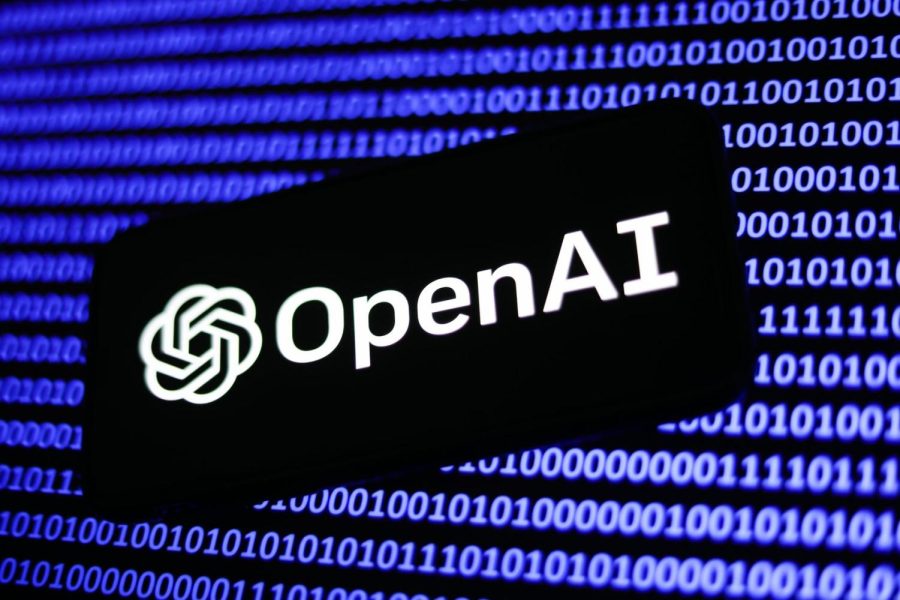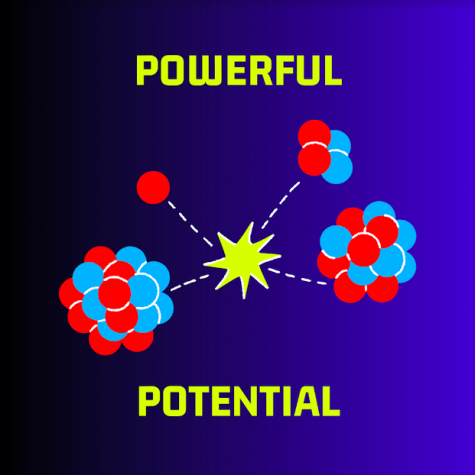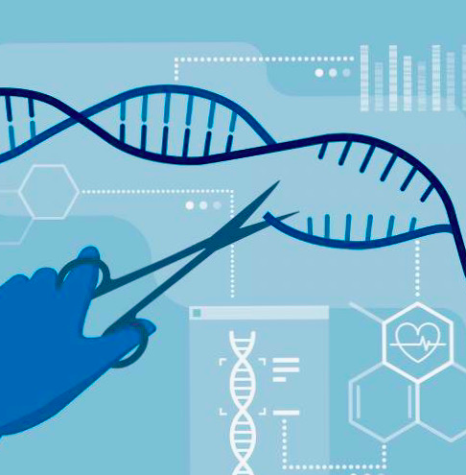ChatGPT is changing the future of education
In recent weeks, the media has been dominated with stories covering ChatGPT. The artificial intelligence bot, developed by artificial intelligence research laboratory OpenAI, has had its share of promoters and detractors.
Regardless of the mix of opinions, it is clear that ChatGPT is revolutionizing the way we interact with technology and changing the future of education.
So what is ChatGPT, and how does it work? The Oakland Post, with assistance from Tianle Ma, assistant professor in the Department of Computer Science and Engineering, asked ChatGPT directly.
“ChatGPT is an artificial intelligence language model developed by OpenAI, designed to understand natural language input from humans and generate human-like responses that are both informative and engaging,” the bot said. “In other words, it is an AI-powered chatbot that is able to understand human languages and generate responses that are intended to mimic human conversation.”
As ChatGPT was trained on massive quantities of text data from the internet like books, websites and articles, the AI bot is able to learn the patterns and rules of human language.
“ChatGPT can understand and respond to a wide range of topics and questions. It can provide information, make recommendations and even engage in casual conversation,” the bot said. “When you interact with ChatGPT, you can type in questions or prompts, and the model will analyze your input and generate a response based on its understanding of language.
“The responses can be anything from informative answers to playful banter, depending on the context of the conversation.”
Utilizing ChatGPT undoubtedly has its benefits. It’s accessible 24/7 to provide quick solutions to questions, give recommendations on products or services and can be a time saver for many businesses and organizations.
However, as ChatGPT will tell you, it has plenty of drawbacks.
“ChatGPT may struggle to understand the context of a user’s inquiry or the nuances of language, leading to inaccurate or inappropriate responses. ChatGPT’s accuracy and effectiveness depend on the quality and quantity of data it has been trained on,” the bot said. “If the data it has been trained on is biased, incomplete or inaccurate, ChatGPT may produce inaccurate or incomplete responses.
“[Additionally,] ChatGPT may store and process sensitive user information, which could pose security and privacy risks if the user data is not properly protected.”
There also is concern over how ChatGPT will impact students and educators. The rise of the AI bot has alarmed schools across America.
“Students will absolutely be able to use it instead of just doing their homework,” OU student Nick Mumby said. “They would be able to write papers with it, and you won’t be able to tell the difference, because it’s not something’s been written before — it was written just then.”
ChatGPT itself warns of its own constraints for students. Despite being a powerful tool, AI simply cannot replace human influence.
“Looking ahead, ChatGPT and other AI-powered chatbots have the potential to transform education by providing personalized, accessible and efficient learning experiences. However, it’s important to use these tools in a way that complements and supports human educators rather than replacing them entirely,” the bot said.
“It’s also important to recognize the limitations of AI-powered chatbots and to use them in a way that balances their benefits with their limitations.”
It is evident that ChatGPT and other artificial intelligence technologies will impact our society in complex and multifaceted ways. As we progress into an ever-changing technological world, it is important to recognize the benefits and drawbacks of these advanced technologies and use them in a way that maximizes their benefits while minimizing their potential negative impacts.












Jumarion C. • Mar 16, 2023 at 5:00 PM
“If the data it has been trained on is biased, incomplete or inaccurate, ChatGPT may produce inaccurate or incomplete responses.”
As it has already been shown to be biased, if we do allow it to become an influence upon us, upon education, and/or upon society, we further our own destruction.
There is no such thing as artificial intelligence. There is only a long series of failed efforts to approximate intelligence which continually show that intelligence can not be duplicated. Continuing this pursuit is not just futile, it is extremely dangerous to civilized society.
yousef • Mar 20, 2023 at 9:30 AM
Agreed. AI technology is more dangerous than nuclear weapons. Just as our ancestors knew the pen is mightier than the sword so too is AI than nuclear weapons. It has the power to distort our perception of reality by the creation of fake photos and videos. Every election and every news report will now be living under the shadow of doubt if we allow this technology to run unchecked. It is an assault on the legitimacy of truth and thereby our perception as we know it.
Not to mention the pornographic applications of it. imagine having a very accurate representation of your face derived from only a few photos or a video of you doing anything a perverted depraved mind wants you to do if we allow this tech to develop unchecked. It unshackles the human imagination to indulge its most grotesque and hellish appetites.
Also it allows for social engineering on a scale we cannot imagine with automated realistic calls.
Congress must act and ban the usage of this tech with fines in the millions and imprisonment of not less than 5 years with maximums to include life in prison for more serious offenses. Allow for civil action to be taken to the highest degree for infringements on the likeness of unwilling people. Sue this technology into oblivion.